1. The Golden Rule
Do: Make sure you always (and we mean always) remove your makeup before hitting the sheets. The skin needs to breathe overnight. And makeup prevents that, as leaving it on overnight clogs the pores which may cause blemishes and/or blackheads. Don’t possess a makeup remover? Just put some olive oil on a cotton pad and gently massage the oil onto your face to get rid of the makeup and dirt.
Don’t: Forget that exfoliation is indispensable. At least once or twice a week, exfoliate your skin to remove the layers of dead skin, sure to leave you with a more healthy glow and brighter skin. You can also apply a paste of walnut in powder form with yogurt to exfoliate your skin, as the antioxidants present in walnuts help remove dirt and promote radiant skin.
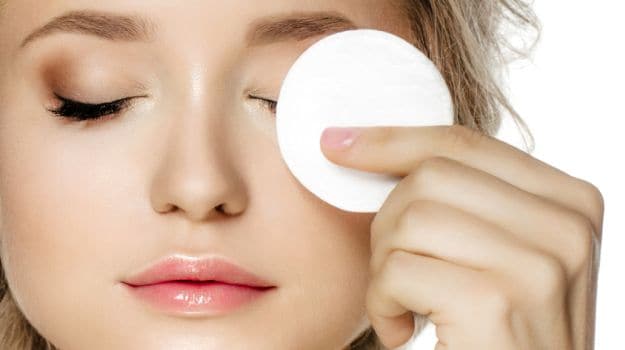
2. Sun and Skin
Do: Apply sunscreen with SPF of at least 15 that blocks both UVA and UVB rays. Since a lifetime of sun exposure can cause wrinkles, age spots and other skin problems, you have to protect your skin from the sun. Make sure the label reads ‘noncomedogenic’ or ‘nonacnegenic’ so that the product does not tend to block pores.
Don’t: Skip the sunscreen, whether it's cloudy or cold outside (no excuses). If you’re heading to a beach or around reflective surfaces like snow or ice, lather your skin up with some more sunscreen with SPF of at least 30.
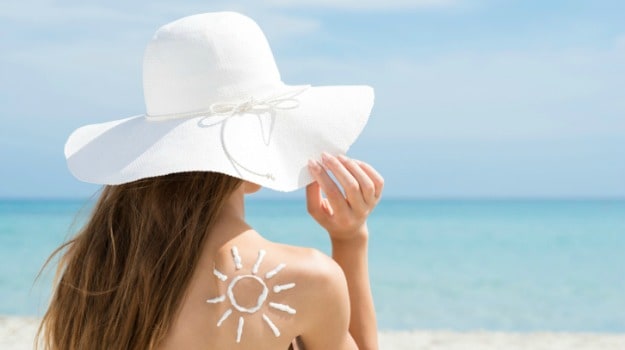
3. You are What You Eat
Do: Keep a note of what you put on your plate. Eat fresh fruits, greens, sufficient protein and vitamins. A diet rich in vitamin C and low in fats and sugar promotes radiant skin. Consider a low-sugar diet, which can keep insulin levels down, allowing cells to maintain a healthy balance.
"Don’t: Eat spicy and fermented foods, salt, citrus fruits, fried food. Instead favour blander foods such as rice, oatmeal and applesauce”, advises American author and Ayurvedic physician, Vasant Lad, in The Complete Book of Ayurvedic Home Remedies.
(Also Read: Turmeric Powder for Beauty: How To Use it For Your FaceAnd Skin)
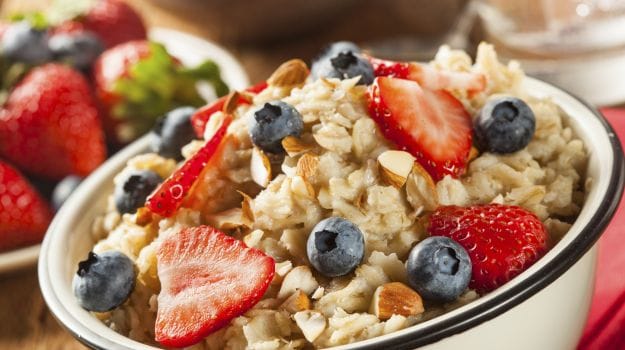
4. Sweat It Out!
Do: Exercise regularly. Running, jogging and yoga will give your body the necessary blood circulation, and also accelerate the cleansing process of your entire body. You will notice a glow on your face after working out. Racing against time? Just take a brisk walk around the block.
Don’t: Skip skincare before and after a workout. Apply a toner to help minimize oil production before heading out. Exfoliate after, and then apply shea butter or olive oil to moisturize the skin.
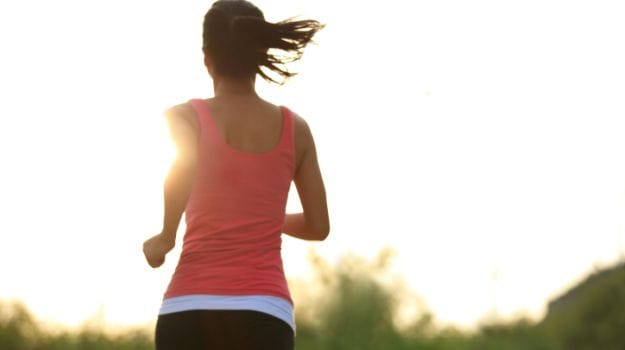
5. Beauty Sleep
Do: Try to sleep at least 8 hours every night. If you don’t get enough shut eye, your skin gets tired just like you - it sags and you get bags. So don’t risk it. You can also apply honey on your face twice or thrice a week to naturally soothe and heal your skin.
“Don’t: Forget to wash and moisturize your face before going to bed”, recommends Dr. Rahul Nagar, Dermatologist, Max Hospitals. “For dry skin, use milder cleansers that are free from alcohol. Apply lots of moisturizer, and avoid hot water as it dries out the skin excessively.”
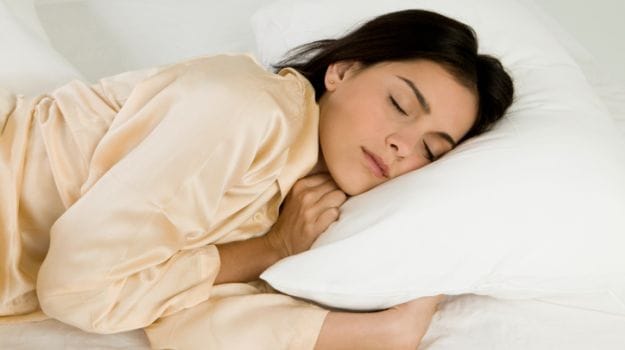
6. H2O to The Rescue
Do: Hydrate yourself. Drink lots of water daily, at least 8 glasses if not more. Also, eats fruits and vegetables that have a high water content such as watermelon, cucumber, orange, strawberry, grapefruit and cantaloupe. Ayurvedic physician, Vasant Lad recommends to “drink water from a blue coloured bottle”, since it has a cooling effect.
Don’t: Ignore rose water. It helps prevent and reduce eye puffiness in the morning, maintains pH balance and naturally hydrates your skin if you spritz it on during the day.
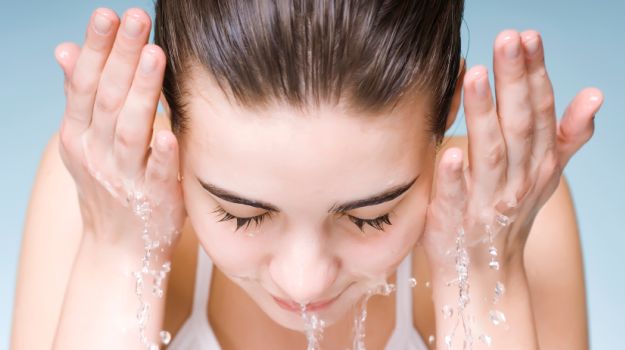
7. Goodbye Acne
“Do: Wash your face with warm water, three times a day, and gently massage your face in circular motions, ensuring that the cleanser contains alpha hydroxyl acid or beta hydroxyl acid. Face packs that contain multani mitti (fuller’s earth) work really well too. After cleansing, pat dry and apply a lotion which contains benzoyl peroxide”, suggests Dr. Zaheer Ahmed, Dermatologist, Max Hospitals. Benzoyl peroxide appears to be effective due to its antibacterial actions.
Don’t: Pop pimples because it can lead to more swelling, redness, and even scarring. Feel a pimple is on its way? Just clean the area with rose water, and place a chilled green tea bag for 10 minutes. Also, if you wear glasses or sunglasses, make sure you clean them frequently to keep oil from clogging the pores around your eyes and nose.
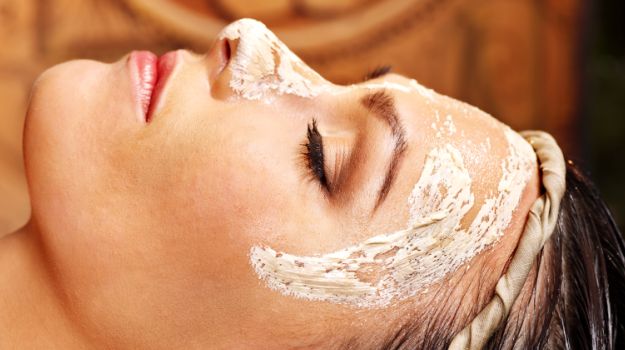
8. Go Back to Your Roots
Do: Use Ayurvedic scrubs to nourish the skin, and help it breathe better. Luckily for you, everything you need is already in your kitchen. 2 tbsp chickpea flour, ½ tsp turmeric powder, a pinch of camphor and sandalwood with some rose water/milk/water is your perfect skincare pack. Yes, the secrets of beauty lies in ancient Ayurveda.
Don’t: Neglect the basics. Make Sudarshan Kriya your beauty mantra. Yes, it’s that easy. Just breathing right could rid you of spots and pimples. Nidhi Gureja, Art of Living, says “Sudarshan Kriya is a breathing technique which incorporates specific natural rhythms of the breath that harmonize the body, mind and emotions. This helps releasing accumulated stresses, and each individual’s experience is different.”
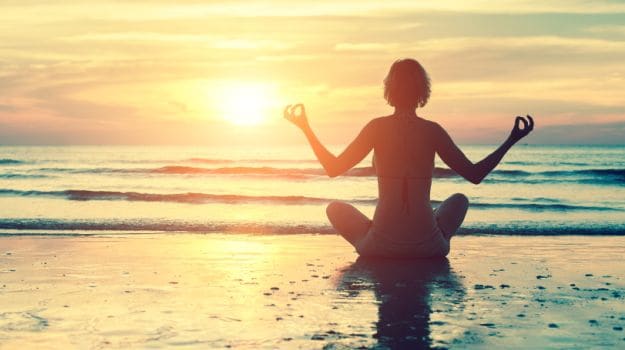
9. Spa Day Everyday?
Do: Have a regular skin care regimen. “For dry skin, use a fresh cherry mask. Apply the pulp of fresh cherries on your face before going to bed. Leave for 15 minutes and wash with lukewarm water”, adds American author Vasant Lad.
Don’t: Forget to pamper yourself. A gentle facial massage with oils could work wonders. Depending on your skin type, choose oils from mustard, coconut, almond or Kumkadi as they are excellent nourishing agents which help to get glowing skin. Better still – switch on some soothing instrumental music. After 20 minutes, what do you have? Beautiful skin and a relaxed you.
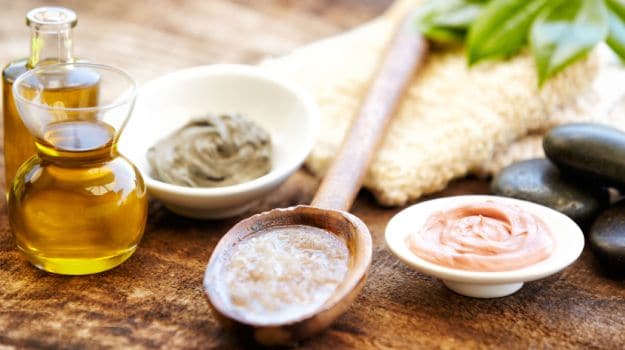
10. Healthy Habits
Do: Take out time for yourself, and try to avoid stress as much as possible. Have you ever noticed that when you are stressed, you tend to break out more? This is because stress causes your body to produce cortisol and other hormones, making the skin more oily. Practice stress management techniques like breathing exercises, yoga and meditation. The more you meditate, the more you radiate.
Don’t: Neglect your jawline and facial muscles. For just 5 minutes a day, perform a few facial exercises. You can jut out your lower lip in such a way that wrinkles are created on the chin, then lower your chin to your chest. Another exercise that works wonders is to look up towards the ceiling and pout. It stretches out the muscles making the skin more firm. “18 till I die”, why not
8 Gentle and Effective Ways to Remove Facial Hair
Of
all the beauty treatments out there, removing your facial hair (or any
hair, for that matter) is one of the least pleasant — but it doesn't
have to be difficult as long as you choose the right method for your
preferences, hair type and needs. If you want to get rid of that fuzz
along your upper lip, hairs on your chin and sprouts between your brows,
here's what you need to know about each possible method.
Plucking
Chances are, plucking is the route with which you're most familiar. After all, tweezers are commonplace in most households so they're the easiest to reach for when you see some strays.
"Tweezing is better for smaller, localized areas like your brows and chin since it's much more labor intensive," advises Lavanya Krishnan,
M.D., a dermatologist based in San Francisco. Just make sure you're
diligent about cleaning them, she adds. "I recommend cleansing your tweezers once per day with warm soap and water, then storing them in a dry place."
If you're not sure how to properly shape your brows, take a look at our easy eyebrow guide.
Waxing
Another
very common method is waxing. Using either soft wax, which is pulled
off with cloth strips, or hard wax that simply hardens and is pulled off
on its own, a practitioner can remove hairs from your upper lip,
cheeks, brows and chin with ease. But this popular practice isn't for
everyone.
"Waxing can cause irritation because the skin can be sensitive to the products being applied to the surface," warns Michelle Yagoda,
M.D., a cosmetic surgeon based in New York. "And inexact technique may
result in incomplete extraction of the hair follicle and breakage of the
hair shaft, so the skin surrounding the hair shaft can then become
inflamed." If the retained hair follicle becomes entrapped, it can lead
to ingrown hairs. Always read reviews online prior to visiting a new
waxing boutique. Your skin will thank you.
Shaving
While
shaving may be less commonly used on the face than the aforementioned
options, it's the way many women choose to remove their facial hair. But
wait — what about that old wives' tale about hair coming back thicker
if you shave?
"It's
just a myth that your hair will grow coarser and more densely after
shaving," explains Dr. Krishnan. "The follicle gets cut in half so it
feels pricklier, but it's not any thicker."
If you feel most comfortable with a razor, just be sure to take precautions so you can get the smoothest, least irritated finish.
"Shave
either in the shower or just afterward to allow the skin to soften,"
advises Anthony Sosnick, shaving expert and founder of Shaveworks.
This is also helpful if you have thick or coarse hair, as the heat of
the steam also softens the strands. Then apply a pre-shave oil, which is
frequently used by men, but Sosnick notes that it can help women avoid
razor burn too. As for the razor itself, Sosnick recommends picking one
with two blades, as "they tend to be more targeted for those sensitive
areas — and sometimes, fewer blades does the job without the potential
for redness and razor burn."
One big tip from dermatologist Michael Swann,
M.D.: Don't make passes over the same area several times with your
razor. Otherwise, you could irritate your skin — not a great look to
have front and center on your face. Once you're done shaving, apply a hydrating moisturizer to sooth your skin.
Threading
Threading
is a very common practice in Middle Eastern and Asian countries that
involves using a thin, doubled cotton thread pulled super-taut to roll
over spots where you wish to remove hairs, thus pulling them out. While
it isn't quite as labor intensive as plucking hairs one at a time, it
works best on smaller areas such as the eyebrows, upper lip and cheeks.
And unlike using tweezers, threading is much trickier to try if you've
never been trained in it, so head to a salon with a professional who
specializes in it for the best results.
WATCH: Two women try professional eyebrow threading
Depilatory Creams
Gone are the days when depilatory creams were pungently scented — there are lots of new ones that are gentle and fragrance-free. These creams are applied to the area with unwanted hair, then wiped away along with the hairs themselves.
"Depilatory
creams use chemicals such as calcium thioglycolate or potassium
thioglycolate, which break disulfide bonds in keratin, thereby weakening
the hair," explains Christine Choi Kim, M.D., a dermatologist based in Santa Monica, California. If you go this route, always do a patch test first to check for any allergies.
Topical Prescriptions
In
addition to the aforementioned over-the-counter or in-salon methods,
you can also talk to your dermatologist about trying a topical
prescription.
"There
are prescription meds like Vaniqa, which is a topical once-a-day
treatment used to reduce hair growth," explains Dr. Krishnan. Here's the
catch: while it's "very effective," Dr. Krishnan notes that once you
stop, the effect wears off and your hair will grow back.
Laser Hair Removal
If you want something much more permanent, you can try laser hair removal, also known as intense pulse light therapy.
"Lasers
shoot a certain wavelength of light that's specifically absorbed by the
hair follicle itself," says Dr. Krishnan. When that light is absorbed,
it's converted into heat which kills the hair follicle. The advantage
this route has over electrolysis is treating a larger portion at a time,
while electrolysis (elaborated on below) is individually ablating one
follicle at a time — think waxing versus plucking. The downsides: This
isn't an ideal route for those with light or fine hairs, and the cost is
high, with sessions ranging from $50 to $300. Plus, you may need
several sessions to fully destroy the follicles.
Electrolysis
Another
permanent option: electrolysis, which uses concentrated heat to destroy
each follicle one at a time to prohibit hairs from growing. This is an
ideal method for folks who want permanent hair removal, but can't do
laser removal because their hairs are light or fuzzy.
If you're searching for ways to get rid of hair on your legs, arms, bikini line and underarms, check out our full-body hair removal guide for more info.
No comments:
Post a Comment